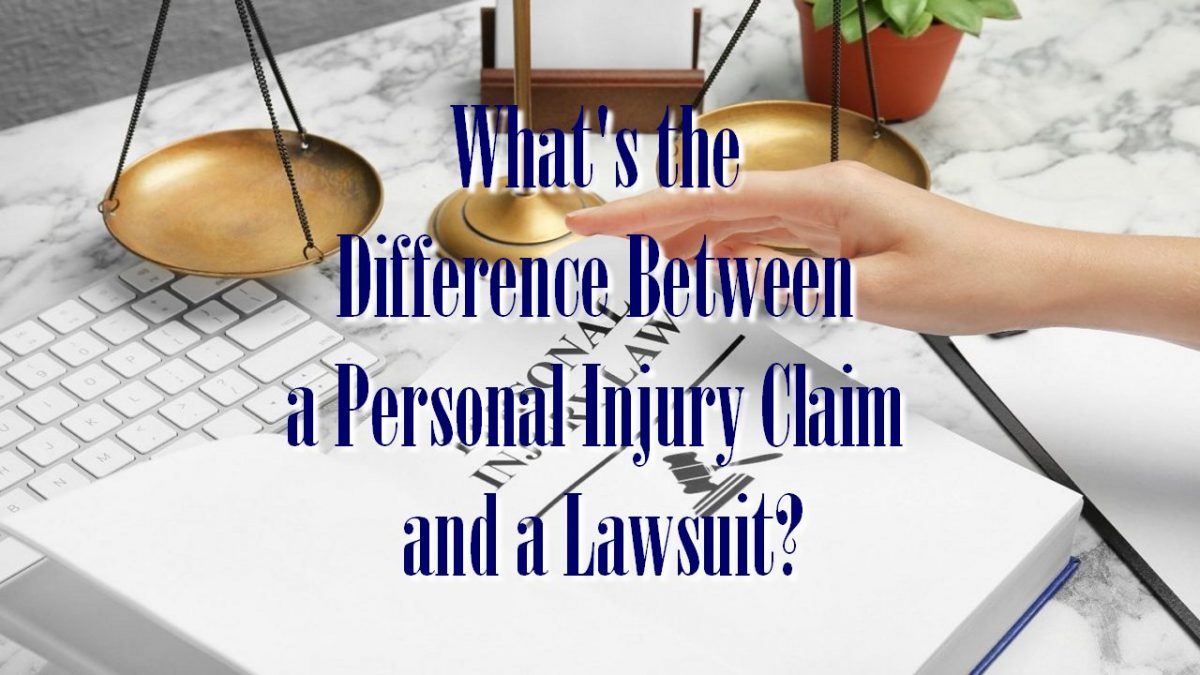It is important to know the meaning of these two terms and what actions and options you have for your deserved compensation. Understanding these concepts can be life, time, and money-saving.
You can file a personal injury claim or file a lawsuit.
To explain the difference, the qualified injury lawyers from Jae Lee Law have offered their expert opinion.
Injury claim

An injury claim is another word for an insurance claim. This means you can file an insurance claim with your company or the insurer of the negligent party. The claim can be auto-insurance policy, homeowner’s or property owner’s policy, or professional liability policy. All this depends on the type of accident that occurred.
Because human nature is susceptible, the insurance must investigate the accident. You must understand the insurance adjuster’s perspective. Their sole goal and motivation are to work for the insurance company, not for you. This is a really good reason to have an experienced and reputable injury lawyer because an insurance adjuster will be looking for loopholes. Their goal is to make your compensation fee as low as possible.
A good attorney will hear out your story and give you feedback on what you should say. The last thing you want is accidentally foul-mouthing the other party or mistakenly admitting that you are guilty. It is much better to allow your injury lawyer to stand up for you. This is because they will cater to your interests and will make fewer mistakes than you.
In the end, a fair claim you will receive.
Personal Injury lawsuit

This occurs when the process above fails to give you a result; a fair claim. If you can’t reach an agreement with the insurance company of the defendant, your attorney will file an injury lawsuit against the negligent party. In simpler terms, this means you will be proceeding to a civil court of law. The court sessions seek court judgment. In most cases, these issues are addressed before any lawsuit is filed. This is called informal settlement.
The other form of settlement on the other hand is called the formal lawsuit. A formal lawsuit typically accuses the defendant of a particular that caused them harm or is connected with a certain accident. It is important to note that this type of settlement has to satisfy the aspect of negligence and proof. This theory in law has four basic elements:
· Duty – In law, there is a significant and undeniable relationship between the defendant and the plaintiff. This is coined as the legal duty of care. For example, we all know that a doctor is obliged to take care of a patient. Likewise, the defendant in certain situations must act with reasonable care, as failure to do so may result in legal consequences
· Breach of duty – The court will investigate if the defendant deliberately ignored their legal duty of care. Did they follow through or not? This is reasonable compared to what an “averagely rational person” would act. The question is “Would an averagely prudent person be aware of the injury he or she has caused someone and act differently?”
· Agent – This element focuses on the defendant’s negligence which caused actual injuries. However, one must be careful not to put immediate blame on the defendant. In cases where events happened “out of the blue”, the defendant will not be liable. For example, if a driver has caused damage to your compound fence after a deer popped onto the street, then it is deemed to be out of their control.
· Damages – This is the last element of a negligent case. The court should be able to indemnify the plaintiff through monetary expenses for medical bills and property repairs.It is also important to note that filing lawsuits have time limits. They start once the plaintiff is injured or discovers the injury. You should be aware of the statute of limitations in your state.

 Welcome to my blog, which is dedicated to home cooking. In this blog you will find a lot of simple and delicious recipes for cooking for your family.
Welcome to my blog, which is dedicated to home cooking. In this blog you will find a lot of simple and delicious recipes for cooking for your family.